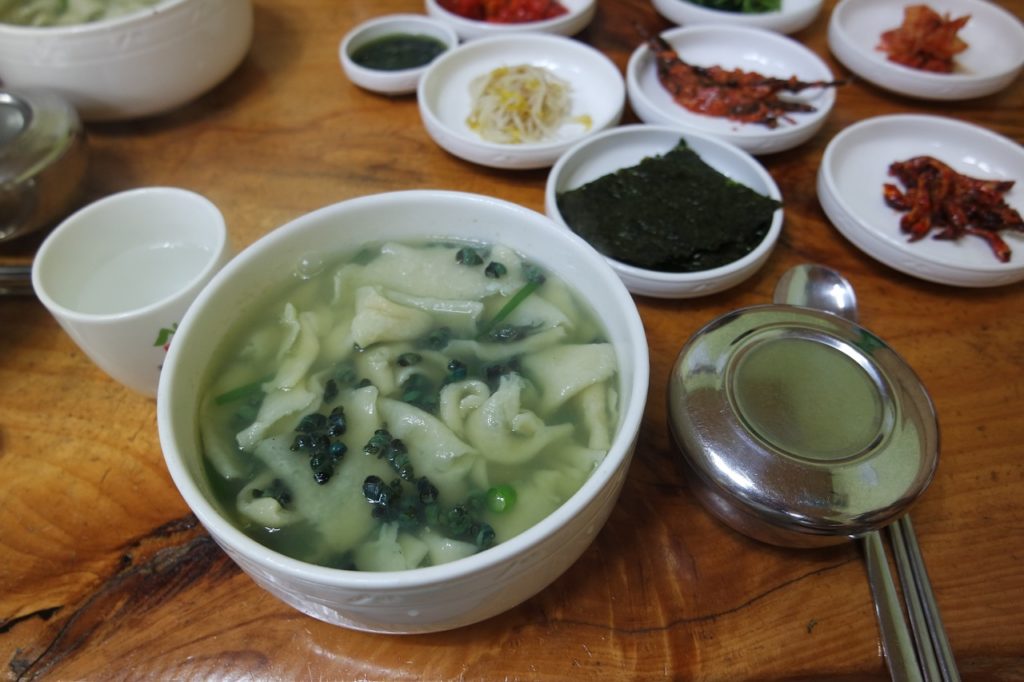The lime green coat of paint on the stucco outside walls of Baden Baden Hof had faded. My father’s younger brother, the oldest of my three uncles on my father’s side, convinced my father that his restaurant could use a little makeover, that it’d be good for business. My father’s restaurant-slash-pub, whose hours of operation were 6 PM – 6 AM, had been open for five years, after all. So he introduced my father to his friend Mike who was supposedly a contractor. But he wanted the estimated costs up front—a classic scam. Mike quickly ordered a gut renovation, and after a month of tearing apart the insides of my father’s restaurant, he ran away to Korea with my father’s money, never finishing the job and never to be found again.
My uncle claimed he had nothing to do with it, and my father didn’t pursue it further, always defending his “innocent” brothers. It was now up to my mother to figure out how we would reopen for business, tens of thousands of dollars in debt. My father was never a good businessman. He trusted too easily and gave everyone the benefit of the doubt, even those who hadn’t earned it, and especially anyone who was family. The outside walls were newly painted an electric blue, a color none of us—family or patrons—ever got used to.
We finally reopened Baden Baden’s doors after six long months, but it would never be the same. The halt in business and having to rebuild the restaurant out-of-pocket after already losing their initial investment to a con artist, really hurt my parents ’finances. My father hired someone he knew and trusted to step in and fix all the damage Mike had left behind. My mother asked distant relatives and old friends for money to cover the cost of repairs, renovations, legal fees, rent and accumulating debt, even going so far as pawning her and my father’s matching Rolex watches—which my mother had promised my brother and me we’d inherit once we were each married. Her pride and self-esteem devastated by my father’s failures, my mother continued calling in favors and patching up his mistakes. One of the favors she asked was of her younger sister, my 이모 (imo is Korean for ‘maternal aunt’). Would she move to the States temporarily from South Korea to help our family’s failing business? It was an exchange, really: my cousin Eric, my imo’s youngest child of three and only son, would come to also live with us, enroll in American school and learn English, while she worked for us, essentially, for free—saving my parents yet another employee’s salary.
My imo was the mother I had always wanted. Bright, upbeat, positive, she emanates positive energy, unable to hurt a fly. Her rosy cheeks puff into little pouches the size of apricots when she smiles her big shining smile. She doesn’t drink much, wakes up early, and doesn’t have an opinion on everything (or perhaps she did and was simply too nice to share it); she was the exact opposite of my mother. I would be lying if I said I wasn’t envious of my cousin Eric, who changed his name upon moving to America from Jaehoon to Eric after a South Korean boy band singer from the group Shinhwa. Eric was ten years old when he and his mother moved in with us, and he had never had to toast his own bread.
“What do you mean you don’t know how to make toast?” I asked, incredulous.
“I’ve never had to toast bread before,” he replied, looking at us with his large puppy-like eyes. “My mom makes it for me.” I was so jealous I wanted to smack his perfectly pale and handsome little face. Before my imo and Eric came to live with us, my siblings and I ate only microwaveable Costco burritos and Bagel Bites, or instant ramen if we were feeling indulgent. We had boxes of Doritos, Cheetos, and Fritos in the lunch-pack sizes stacked high in our walk-in pantry. There was no one to stop us if we wanted more than one. The “Costco Diet,” my brother calls it now when we reflect on those days. My parents were never present in our lives while they were busy tending to Baden Baden because they were either sleeping all day when we were home from school, and we had to scurry through the house in low whispers as to not wake them, or they were at work, leaving right before dinner and returning home after we had already left for school the following morning. My tired mother found it most cost-efficient and least time consuming to buy microwaveable meals from Costco. My brother used to blame my parents for his becoming overweight.
After my imo arrived, we started having home-cooked meals again. She would wake up early every morning and drive Eric to school so he didn’t have to take the bus. She would then come home and cook up a large pot of something healthy and delicious, so that lunch and dinner were ready once we all got home from school. Still, my brother would be ungrateful, missing the days of his freedom eating Doritos for lunch and Hot Pockets for dinner.
“Sujebi, again?!” my brother cried out in frustration one day after seeing that my imo had made it for the fourth time that month. “I’d rather not eat,” he said, more to himself than anyone else, before storming up the stairs into his cave of a room and slamming his door shut. The noodles in this soup are made from hand-torn pieces of wheat dough which meant my imo had massaged and kneaded the dough by hand just hours before. Everything about this dish requires deliberate, physical work. It’s not a soup that comes in a can or a box that you simply heat in the microwave or on the stove. But my imo neither scolded nor demanded my brother come back downstairs and eat his food regardless of his preference (like my mother probably would have). She just smiled with her bright eyes and told Eric and me that there was plenty for seconds.
On top of cooking, she’d also clean the kitchen and the first-floor bathroom, fold our laundry, and vacuum the living room. She’d stroll out the door at 3 PM, go to the gym, then to the spa, wash up, and go straight to my parents ’restaurant to open, work, close, come home the next morning, drive Eric to school so he didn’t have to take the bus, and do it all over again. I could never figure out when she had time to sleep. My brother and I refused her offers for a ride and would resume taking the bus. With my imo in town, my mother and I no longer had to leave the house at four to go to work. We could leave the house at five or even seven in the evening. If my mother had had too much to drink a particular morning after work, my imo would always be at the restaurant to open its doors at 6 PM sharp. She was reliable and loyal and cared about everyone but herself. I wonder if my imo gets nostalgic for sujebi. I do. Come to think of it, I don’t think I have ever had sujebi again, since. I think it would be too painful to eat a bowl now,remembering my imo’s bright smile and how she had endured all those years working for my parents despite the long hours, late nights, and loneliness—being thousands of miles away from her husband and two daughters who had stayed behind in Korea.

Cecilia Kim holds a B.F.A. in Drama from New York University and a M.F.A. in Creative Writing from The New School. Originally from South Korea, she immigrated to the states when she was 3. After living in New York on-and-off for 8 years, she is now in Los Angeles acting and teaching Creative Writing. This is an excerpt from her forthcoming memoir, Three Restaurants, which tells the story of her father’s three restaurants and the rise and fall of her immigrant family


Comments are closed.